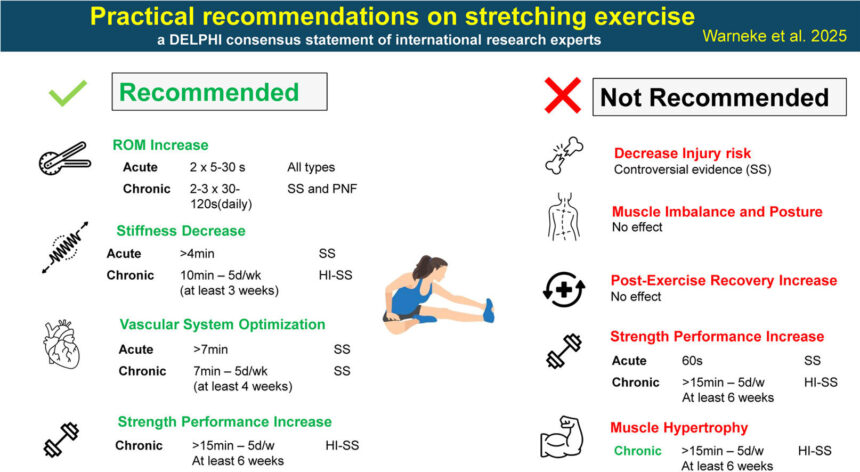The field of stretching has long been shrouded in controversy and myths, with conflicting advice on when, how, and why to stretch. However, a groundbreaking study led by Prof. Dr. Dr. Jan Wilke of the University of Bayreuth has finally provided evidence-based recommendations for effective stretching practices. Published in the Journal of Sport and Health Science, these recommendations aim to dispel common misconceptions and provide clear guidance to athletes, coaches, and therapists.
The research team, comprised of 20 leading stretching experts from around the world, conducted a thorough review of existing literature and engaged in a DELPHI process to establish a consensus on best practices for stretching. The results of their study offer practical advice on when stretching is beneficial and when it is not, as well as the appropriate duration and techniques to use.
Among the key recommendations made by the team are:
– For short-term flexibility gains: at least two sets of 5-30 seconds, regardless of stretching technique
– For reducing muscle stiffness: at least 4 minutes of static stretching five times a week for long-term effects
– For cardiovascular benefits: at least 7 minutes of static stretching for acute effects and 15 minutes for long-term benefits
While the researchers acknowledge that stretching may not be effective for all purposes, such as injury prevention or posture correction, they provide clear guidance on how to use stretching to support muscle growth and strength development.
Prof. Wilke emphasizes the importance of bridging the gap between scientific research and practical application, noting that it often takes years for research findings to be widely adopted. By combining evidence-based insights with expert opinion and practical experience, the team hopes to transform stretching into a valuable and targeted training method.
For more information on the study and its findings, readers can refer to the original article published in the Journal of Sport and Health Science. This groundbreaking research has the potential to revolutionize the way stretching is approached in sports and fitness, offering evidence-based recommendations for optimizing performance and reducing the risk of injury.








